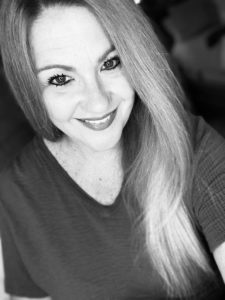 This author interview features writing advice from author Jill Wilson-Carlyle. Jill’s memoir, Finding Fifty, will be self-published in 2020 through her publishing company, Empowerment Publishing Group.
This author interview features writing advice from author Jill Wilson-Carlyle. Jill’s memoir, Finding Fifty, will be self-published in 2020 through her publishing company, Empowerment Publishing Group.
Q: When did you first realize you wanted to be a writer?
Wilson-Carlyle: When I was a child, I always loved to write and create. I started as a songwriter; I wrote songs when I was young. Then, in high school, I started writing short stories and books. But, I never did anything with them because I was focused on my music. So, I was a songwriter before I was an author.
Q: What experiences have shaped your writing most?
Wilson-Carlyle: I would say my own life experiences. Also, journaling those experiences throughout the years has been instrumental in my writing. When I went back to college at the age of 43, I had some amazing professors at the University of Central Florida that impacted my writing. My professors helped me feel very confident about my voice. Because of what I went through as a child and young adult, I felt oppressed and afraid to use my voice. So, these women who were my professors and mentors helped shape my writing as an author.
Q: How do you make time to write while juggling other responsibilities?
Wilson-Carlyle: I have found that scheduling time to write is imperative in balancing a heavy workload while trying to find time to write. At one point, I was a writing teacher, a graduate school student, and writing my memoir. If I didn’t have a schedule, everything just fell by the wayside – and I mean everything but mostly my writing. I just couldn’t let that happen. So, I have to schedule my writing time, even if it’s 10 or 15 minutes a day.
Q: As a writing instructor, what would you say is the most critical component of the writing process?
Wilson-Carlyle: I teach this all the time; I would say brainstorming. Writing starts with an idea, and then you have to expand on it.
Q: What aspect of writing have you most improved on? What helped you grow?
Wilson-Carlyle: Revisions! My revision process has improved tremendously. Continuing my education through a creative writing master’s program has contributed to this growth. The people in my program have been instrumental to my development, not just my instructors but also my peers. Peer review workshops have also really helped me to improve my revision process. I’m now able to reflect on my work and identify what needs improvement. This can include requiring stronger descriptive details, adding sensory details, or sprinkling figurative language throughout my work. My education has allowed me to become a more insightful editor.
Q: Do you have a researching process?
Wilson-Carlyle: I definitely have a researching process. The researching process is necessary for all genres, even if you are writing a memoir. For example, in my memoir, Finding Fifty that I’m publishing at the end of this year, the research process started with my ideas. I then ask family members for insight and try to corroborate my stories to make sure that I am writing as truthfully and as I possibly can. I ask if my memories are the same as theirs, and if they aren’t the same, why are they different? And that doesn’t mean that my truth isn’t the truth. But, with this project, my research consisted of asking other people for their insight. If I am writing a nonfiction essay about a historical event or a person, I will try to interview as many people as possible. Conducting a variety of interviews can provide you with unique perspectives and better help you understand the topic you’re writing about.
Q: Writing a memoir can be an emotionally charged experience. Did you ever encounter emotional blocks while writing Finding Fifty? If so, how did you overcome them?
Wilson-Carlyle: I definitely can speak to that. Writing my memoir has been the most cathartic, challenging, and rewarding experience. At times, I revisited gut-wrenching feelings and emotions. I had to allow myself the space to cry, get angry, and express my feelings. Whenever I work through complicated feelings, I can typically write about emotionally charged experiences and am okay while doing it. However, when I go back to revise and read my work out loud, that’s when I fall apart. That has been really difficult.
I’m glad I wrote my memoir while I was in school because it forced me to process a lot. It’s easy to sit in front of the computer and feel that you can’t do it. Writing my memoir during my schooling meant that I had deadlines I had to meet; it forced me to face it. Whenever I was forced to face a painful experience, I decided that I would allow myself the space to hurt. That’s how I was able to write my book.
Q: What do you want readers to take away from your stories?
Wilson-Carlyle: Hope. My memoir is a painful story, but it’s full of hope and encouragement. As readers navigate my story, I want them to walk away with hope for themselves as women.
Q: What’s the best writing advice anyone ever gave you?
Wilson-Carlyle: The best writing advice that I’ve ever gotten was from one of my professors. I remember visiting her office after reading my peers’ work. I sat with my professor and said, “Farrah, I don’t think I’m cut out for this. I don’t talk like this. I don’t use some of these words. My language isn’t pretty.” She looked at me and said, “your language doesn’t have to be anything but yours. Stick with who you are and stick with what you know. That’s what makes you, you. That’s what makes your words your truth, and that’s all that matters.” Our conversation was a huge breakthrough for me; it was almost like my writer’s block went away.
Q: How do you suggest new writers become better writers?
Wilson-Carlyle: Here’s what I say to people that want to write. Just get to the starting line, from there, the possibilities are endless. Getting to the starting line means you sit down, carve out space yourself, and just start writing as simple and as easy as that sounds. It’s one of the hardest things a beginning writer can do. Push fear out of the way and get to the starting line; from there, the possibilities are endless.
Q: What are you currently reading?
Wilson-Carlyle: I just finished reading Educated by Tara Westover and Untamed by Glennon Doyle.
Jill Carlyle is a fifty-one-year-old musician-turned-author. She has published a variety of articles and essays covering everything from family, to feminism, to the importance of the female voice. Jill is a graduate of the University of Central Florida with a Bachelor of Art in English Literature with a concentration in pedagogical Writing and Rhetoric, holds a double Master of Arts in English and Creative Nonfiction from Southern New Hampshire University, and is completing a Master’s Certificate in Women and Gender Studies from The University of Central Florida. Jill is a native of Florida and currently resides in Melbourne, Florida with her husband and three furbabies.




